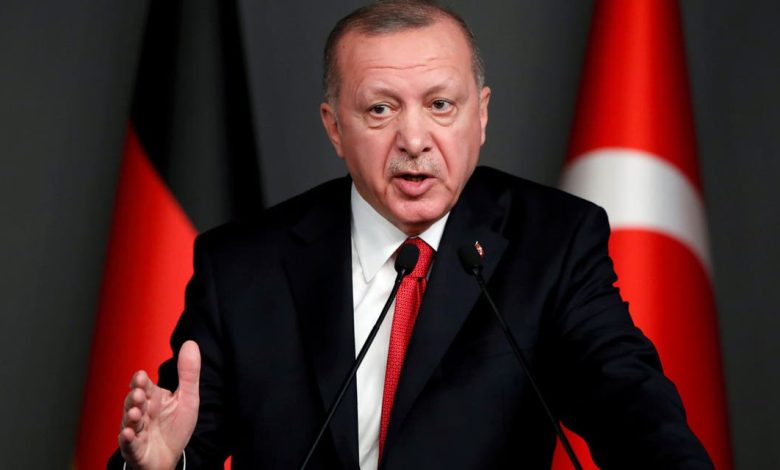Turkey: Do young people threaten the future of Erdogan and his party?

Turkish President Recep Tayyip Erdogan and his Justice and Development Party are concerned about the younger generation, which is suffering from economic crises, difficult living conditions, unemployment and poverty, ahead of elections scheduled for mid-2023.
Observers of the situation in Turkey believe that the generation after the millennium, politically diverse, holds one of the keys to Erdogan’s path toward re-election and his bid to keep the party in power for a third consecutive decade.
But unlike the youth of 2002, when Erdogan’s rise marked a departure from systematic corruption and economic stagnation, teenagers now seem more likely to blame his government for their troubles, AFP reported.
“The current difficult economic situation will widen the gap between what [the ruling party] can provide and what young people want”, said Aicha Alemdaroglu, associate director of Stanford University’s program on Turkey.
In order to gain young people, President Erdogan and the AKP understand the importance of organizing gatherings and seeking to gain access to them online.
Alemdaroglu said: “Once the speeches of the president and other party leaders are followed… We see young people as a major concern”.
Alemdaroglu added: “The AKP collected reports to teach party cadres how to use digital technology effectively and how to speak to the younger generation”.
Meanwhile, the head of the youth branch of the ruling party for the northern region of Cherchemba, Samez Abdulsamad, played down suggestions that the party is unpopular among teenagers.
Samez said: “They say that young people are moving away from the AKP, but nothing like that, it’s lies, the AKP cares more about young people than others”.
Despite the AKP’s attempts to communicate with young people and engage in dialog with them on their own merits, it has proven to it that gaining the confidence of young voters is a difficult issue, not just for the AKP.
According to a 2021 survey of 3,000 young people in Turkey’s 81 provinces by the Turkiye Raporu Institute, 58% of them say they do not want to join a political movement or party to improve the society in which they live.
The AKP does less well than the national average among youth, although at this stage “party differences” do not change the situation; warning that young men are considered a homogeneous electoral bloc, stating that “young people are as diverse as the general Turkish population”.
Another pollster, Murat Gezici, points out that the generation born between 1980 and 1999 has many undecided voters – especially women – which could make the youth vote even more decisive.
“This group of 18.4 million represents 32.6% of the electorate”, he noted in the daily Sozcu, pointing out that voting intentions for the AKP are weaker in this age group.
Yusuf Ziya Güler, a 20-year-old medical student, said: As a son of this generation, he has no memory of Turkey’s economic renaissance during Erdogan’s first decade, but a clear vision of the difficulties that Turks endured in the second.
“I am pessimistic about the future”, he told AFP, saying he was also skeptical of other parties.
“We are an unpredictable country. How to bet on what will happen when I graduate, I don’t even know what will happen in five months”, he says.












